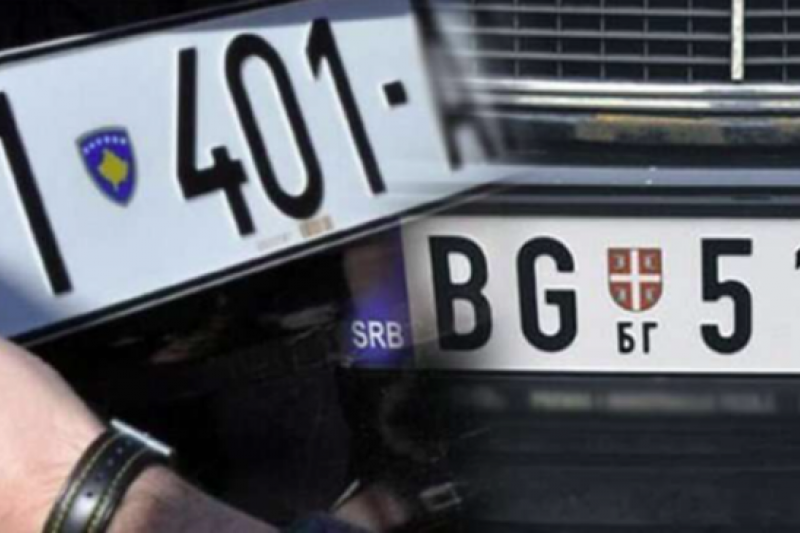EU Welcomes Kosovo-Serbia Reciprocity on Cars Number Plates
European Union has welcomed the decision of Kosovo and Serbia to officially recognize each other's car license plates.
According to the head of the EU's foreign policy and security, Josep Borrell, the decision of the governments in Kosovo and Serbia on the license plate issue "proves that achieving progress in advancing the normalization of relations between Kosovo and Serbia is possible and highlights the importance of continuing the work within the dialogue mediated by the EU".
"This decision is a positive step in the implementation of the Agreement on the road to normalization as well as the commitments made in the framework of the dialogue related to free movement. This decision also constitutes a step in the right direction towards a better regional and European integration of the Western Balkans, from which the citizens of the region benefit", Borrell said through a statement.
On December 25, the Government of Serbia decided to allow cars with license plates RKS - Republic of Kosovo - to move freely in the territory of its state, and the decision starts to be implemented on January 1, 2024.
Meanwhile, on January 4, the Government of Kosovo decided to remove the sticker regime for cars with Serbian license plates.
The government of Prime Minister Albin Kurti said that the removal of the adhesive paper regime "is an act of good neighborliness and comes after full recognition of the number plates of the Republic of Kosovo by Serbia".
On the issue of the Free movement, Kosovo and Serbia reached an agreement in 2011, within the dialogue for the normalization of relations mediated by the European bloc.
The cars were allowed to pass, while the state symbols on the license plates were covered with stickers.
Before the practice of stickers, vehicles with RKS plates were forced to get trial plates at the border with Serbia, which were valid for 60 days and cost 5 euros. But, on September 20, 2021, the Government of Kosovo decided the measure of reciprocity, which also forced drivers from Serbia to go through the same procedure to enter Kosovo.
However, this measure provoked dissatisfaction among the Serbian population in Kosovo, who blocked the roads leading to the border crossing points with Serbia, in Jarinje and Bërnjak.
To reduce tensions, with the mediation of the bloc, on September 30, 2021, the temporary agreement on license plates was reached.
This agreement, which was intended to be in effect for six months until the Kosovo and Serbia working groups find a long-term solution, led to drivers with both Kosovo and Serbian license plates affixing stickers to the state symbols on their license plates. every time they crossed the border of these two states Radio Free Europe reported.













